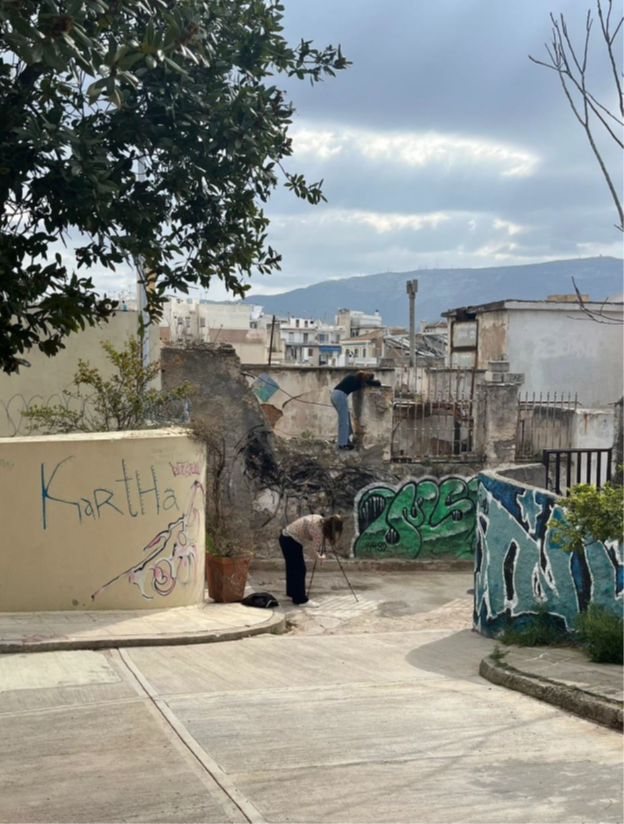An impression by Devon L. Graves, PhD Candidate, Leiden University
Reflecting on my time at the Netherlands Institute in Athens for the collaborative film course, the first words that come to my mind are “fruitful” and “explorative”. Initially, my expectations were to learn new film techniques and understand the basics of filming, video editing, and collaborative principles. However, the experience exceeded my expectations, offering an immersive experience exploring Athens and delving into the course’s themes while making new friends and connections. Throughout the program, I was able to learn not only practical skills, but also dive deeper into critical theories regarding cultural heritage and nation-state building. I also appreciated the opportunity to meet so many students and heritage professionals, who were able to enrich these discussions with their diverse experiences with Athens, heritage work, and archaeology.
In the initial days of the course, we focused on lecture style learning- but swiftly transitioned to more technical and practical film courses sessions, and soon began filming and collaborating within groups. We seized the chance to explore as much of Athens as we could manage on the Greek Independence Day, and to watch some of the National celebrations and see how different archaeological sites and more recent historic sites were represented in the landscape. These experiences provided firsthand insight into the effects of mass tourism, and the stark contrasts between contemporary Athens and the nationally promoted narratives which often centered solely on Ancient Greece. The mission to bridge these gaps between mainstream and marginalized heritage became central to our project. Through our short film, we aimed to spotlight the overlooked narratives of Athens’ history, contrasting them with the commonly marketed ancient heritage. It became apparent that while Ancient Greece received ample attention, other periods and narratives of Athenian heritage were neglected in mainstream discourse. We aimed to contrast these discrepancies in our film through showing the restoration and careful curation of Athen’s “Ancient” heritage, while buildings and structures relating to other time periods and peoples reflected a different story.
Despite the course’s relatively short duration, I thoroughly enjoyed my time at the NIA and learned many vital skills for the future. I hope to one day return to the NIA and to Athens, and thank you again to the course organizers, the NIA, and Archon for the workshop and the opportunity to participate!
